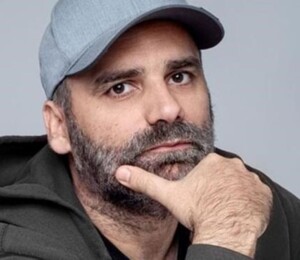If the ‘abyss’ between court rulings and victims’ expectations continues to gape, we will never experience the cathartic years in which justice and its satisfaction pave the path to reconciliation.

Dino Mustafić
I have just completed a play based on Tvrtko Kulenović’s novel ‘Natural History of a Disease’, which opens with a sentence both beautiful and sorrowful: ‘When we fall asleep, we move into a dream from which we wake up. Once we die, we will move into a dream from which we will never wake up. Even when we were born, we entered a dream from which we never woke up.’
We recently said goodbye to a man who was perhaps the last one who was ours, and belonged equally in Belgrade just as much as in Zagreb, Sarajevo or Split, Mostar as well as Rijeka. He was seen as ours everywhere because he was his own and held his own ground in the field of music and art. The departure of one of the greatest and the best, which Djordje Balasevic really was, brought together all the cities of a bygone country, one that sang his verses like an oath, an identifying generational fact. It was just like the departure of Mira Furlan, an ex-Yugoslav film and theatre diva – we recalled her roles and the noble civic gesture of opposing the nationalism which destroyed all social values.
That is usually how it goes when the greats leave us – those to whom we’ve attached collective emotions of nostalgia for the far gone values of unity, and faith that we could have done more together for better and for worse, in life and in death. Thirty years have passed, and death remains the only space for remembrance of the former motherland. Artists, writers, and members of various academic communities can play a key part in the post-war reconciliation process. It is clear that the artistic language of emotions can bring our perspectives on what has happened in the past closer together. Unfortunately, the social science of history is still utilised as a tool to strengthen that which is national. Writing history in our vicinity is characterised by Our organised innocence and Their orchestrated guilt. No one was the perpetrator and everyone was a victim.
History continues to be a tool for propagating and strengthening national identities. The culture of remembrance is extremely important for the future of our vicinity as it opens up the possibility to face our past, by morally re-examining the role institutions and individuals played in the violence and terror of the 1990s. Institutionalised denial and lies serving a political agenda strengthen the power and positions of those individuals and groups who aren’t looking for reconciliation and trust. That’s why we’re waiting, and seeing new kids on the block who have been fighting against indifference for years. Among them are a number of artists who have a leading role in restoring trust, and therefore reconciliation. It is clear that we cannot forget what happened, but it is also clear that we must forgive. The only way this can happen is for every word to be written, every tear weighted, and every victim remembered. We must cultivate a culture of compassion and empathy, and make sure that future generations will never repeat the cruelties towards those of different nationalities or religions.
If the ‘abyss’ between court rulings and victims’ expectations continues to gape, we will never experience the cathartic years in which justice and its satisfaction pave the path to reconciliation.
The greats have left us a legacy of their work and beauty, both in life and in death, which breaks the chain of intergenerational transmission of violence and hatred.
Dino Mustafić, renowned Bosnia-Herzegovinian director of numerous plays and films; he’s worked with the greatest theatres in the region, and his version of Helver’s Night remains the most internationally awarded play in BiH theatre.



Leave A Comment